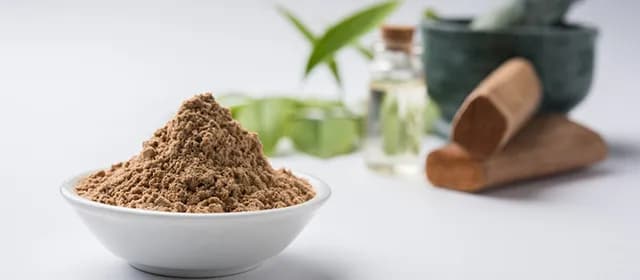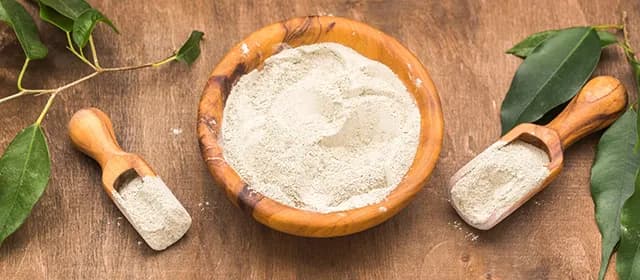There are a variety of supplements and medications that we use to alleviate digestive problems, but are there any natural methods or foods that can provide relief for gastrointestinal issues? The answer is yes - probiotics. They are found in different food sources and offer a range of health benefits, particularly for the digestive system.
Now, let's delve into comprehending how probiotic foods contribute to maintaining good health.
What are Probiotics Exactly?
Probiotics are live bacteria and yeasts that are beneficial, especially for the digestive system. Contrary to the common association of disease-causing bacteria, the body contains both good and bad bacteria, with probiotics being referred to as "good" or "helpful" bacteria due to their role in maintaining gut health. Probiotics can be found in supplements and foods like yogurt, kefir, and cottage cheese.
They are known for their potential to promote digestive health, support immunity, manage inflammation, and potentially reduce the risk of certain conditions, such as asthma and other respiratory diseases. According to a recent report published by Kings Research, the global probiotics market is expected to attain $126.34 billion in revenue by 2030.
How do Probiotics Work?
Probiotics support the beneficial microbes in your body. Numerous probiotic products contain helpful bacteria and yeasts, aiming to prevent or recover from bacterial or yeast infections in various body parts, such as atopic dermatitis, acne, cavities, and gum disease. They also support the body in the following ways:
- It can support the body in maintaining a healthy community of microorganisms.
- It also aids the body in returning to a healthful condition after being disturbed.
- It produces substances that can have favorable effects on health.
- It influences the body’s immune response healthily.
Exploring the Common Types of Probiotics
Probiotic foods contain a variety of microorganisms, with the most common being bacteria from groups such as:
- Lactobacillus: It is a widely found probiotic present in yogurt and other fermented foods. It can aid in relieving indigestion and provide benefits for individuals with lactose intolerance.
- Bifidobacterium: It is usually found in some dairy products and helps ease irritable bowel syndrome (IBS) and other gut conditions.
- Saccharomyces boulardii: It is a yeast found in probiotic foods that aid in fighting digestive problems like diarrhea.
These microorganisms can have different effects on the body, and the combination of probiotic and prebiotic foods in synbiotic products also significantly impacts overall health.
List of Foods Rich in Natural Probiotics
According to IFIC’s 2022 Food and Health Survey, in the U.S., about 32% of people actively try to consume probiotic foods; of those, 60% try to consume probiotic foods at least once a day, and 24% try to have them multiple times a day. Below are some of the main foods enriched with probiotics.
- Yogurt: A well-known source of probiotics, yogurt is made from milk fermented by friendly bacteria, mainly lactic acid bacteria and bifidobacteria.
- Kefir: This fermented milk drink contains a variety of beneficial probiotic strains and is a popular choice for those seeking natural probiotic sources.
- Sauerkraut: It is fermented cabbage that serves as a natural source of probiotics, contributing to gut health and overall well-being.
- Kimchi: A traditional Korean dish made of fermented vegetables, particularly cabbage and radishes, which provides a rich source of probiotics.
- Miso: A staple in Japanese cuisine, miso is a fermented soybean paste that offers a range of probiotic benefits.
- Tempeh: A fermented soy product that contains probiotics and is widely used as a meat substitute in various dishes.
- Kombucha: This fermented tea beverage is known for its probiotic content and is gaining popularity as a natural source of beneficial bacteria.
- Fermented Veggies: Various vegetables can be fermented to create probiotic-rich foods, contributing to a diverse and healthy gut microbiome.
According to statistics from the NHIS (National Health Interview Survey), probiotics rank as the third most commonly used dietary supplement following vitamins and minerals. Certain probiotic strains are also known to promote vaginal health in women.
Understanding the Key Benefits of Probiotics
Probiotic foods can improve health in several ways, particularly concerning digestive health and overall well-being. Below are some key health benefits of probiotics:
- Digestive Health
Probiotic foods can contribute to improved bowel regularity and digestion, reducing discomfort and promoting overall gut health over the long term. They may help relieve symptoms of diarrhea, constipation, and stomach pain, supporting digestive function.
- Immune Support
Probiotic foods may play a role in influencing the body's immune response, potentially contributing to overall immune health. They can help maintain a healthy community of microorganisms in the body and support the body's immune function.
- Vaginal Health
Specific probiotic strains have been identified as beneficial for promoting vaginal health, maintaining a healthy vaginal pH balance, and preventing conditions such as bacterial vaginosis (BV).
- Mental Health
Some studies suggest that probiotic supplements can improve certain mental health disorders, and they may have a positive impact on mood, anxiety, and stress levels.
- Reduction of Diarrhea Risk
Probiotic foods have been associated with a reduced risk and severity of diarrhea from various causes, including travelers' diarrhea and antibiotic-associated diarrhea.
Probiotic bacteria have important roles in supporting the digestive system, metabolism, and digestion. Research suggests that imbalances in gut bacteria are associated with various diseases, such as cancer and type 2 diabetes. It is crucial to include probiotic and prebiotic-rich foods in a daily diet to lower the risk of several diseases.
Bottom Line
Probiotics offer a wide range of potential health benefits, particularly in supporting digestive health, immune function, and even aspects of mental well-being. These beneficial microorganisms can contribute to a balanced gut microbiota, aid in digestion, and help maintain a healthy immune response.
While probiotic foods hold promise for improving health, it's important to note that individual responses to probiotics can vary, and the effects of different strains may differ. Therefore, consulting with a medical professional is vital to identify the best probiotic regimen for individual health needs. Overall, probiotics are a valuable addition to a holistic approach to health and well-being.



